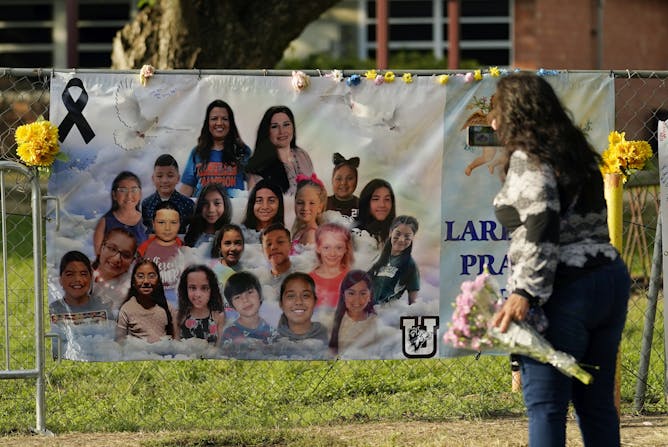|
When Frances Haugen leaked internal documents to The Wall Street Journal and later testified before Congress about the harm caused by social media giant Meta, her former employer, she joined a growing roster of big-tech whistleblowers. One thing that stands out is that in this male-dominated field nearly all of those whistleblowers are women.
There seem to be far too many, given that women make up about 25% of the workforce in tech, for this to be a coincidence. Are women truly disproportionately represented among whistleblowers? And if they are, what is it about their gender that explains the phenomenon?
Two UMass Amherst scholars, computer scientist Francine Berman and sociologist Jennifer Lundquist, dig into the data in search of answers.
This week we also liked articles about the roles that gender, class and ethnicity can play in shaping your ambitions and dreams, context for the debate over raising the minimum age to buy guns and the complexity of the word “evil.”
|

The vast majority of high-profile big tech whistleblowers in recent years have been women.
Elke Meitzel/Image Source via Getty Images
Francine Berman, UMass Amherst; Jennifer Lundquist, UMass Amherst
Frances Haugen, Timnit Gebru and Janneke Parrish are at the forefront of a group of high-profile women calling out big tech. Is there a connection between their gender and their role as whistleblowers?
|

Emile Bernard’s 1888 painting ‘Madeleine in the Bois d'Amour.’
The Print Collector/Getty Images
Karen A. Cerulo, Rutgers University; Janet Ruane, Montclair State University
Your background and life experiences seep into the mind’s eye, quietly shaping whether you believe your dreams can come true.
|

A visitor pays respects at a memorial created outside Robb Elementary School to honor the victims killed in the school shooting in Uvalde, Texas.
AP Photo/Eric Gay
Elise Springer, Wesleyan University
The word ‘evil’ sends a clear message – or does it? There are deep tensions in what the word means, and what it can accomplish.
|
|
|
-
Veronika Dolar, SUNY Old Westbury
A bigger-than-expected jump in inflation means the Fed may have to get more aggressive about interest rate hikes. An obscure economic indicator suggests it has room to do so.
-
Ashwini Tambe, George Washington University
The shooters in the Buffalo and Uvalde massacres were both 18, and legally purchased assault rifles. This is fueling calls to raise the age when someone can purchase this weapon from 18 to 21.
-
Jacqueline Rifkin, University of Missouri-Kansas City; Rebecca Ponce de Leon, Columbia University
Social psychology researchers found that people commonly exaggerate the presence of certain groups – including ethnic and sexual minorities – because they perceive them as ideologically threatening.
|
|